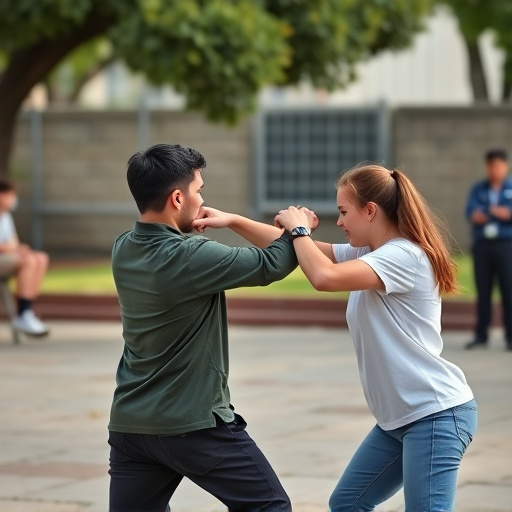College students face unique personal safety challenges, requiring a holistic approach beyond physical techniques. They should be empowered with awareness, prevention strategies, and confidence to assess risks. Campuses should provide resources like workshops and training on basic strategies, pepper spray, and de-escalation tactics. Nationally, campuses are prioritizing student safety through diverse self-defense programs, incorporating campus-specific scenarios and support from local law enforcement and community organizations. These initiatives enhance security both on and off campus, ensuring a safer experience for students.
In today’s digital era, ensuring personal safety is a paramount concern for college students. Understanding the unique self-defense needs of this demographic is crucial for fostering a secure campus environment. This article delves into three key areas: recognizing and addressing self-defense requirements, equipping students with essential skills and strategies for personal safety, and exploring resources and training opportunities that enhance security on college campuses. Discover how these elements contribute to empowering students and creating a safer space for learning and growth.
Understanding Self-Defense Needs of College Students
College students face unique challenges when it comes to personal safety, making understanding their specific self-defense needs crucial. Navigating a new environment, often far from home, can leave individuals vulnerable, especially in unfamiliar settings like dorms, libraries, or late-night walks across campus. Self-defense for college students isn’t just about physical techniques; it involves awareness, prevention, and building confidence to avoid dangerous situations.
Many students may not realize the importance of self-defense until they find themselves in a potentially harmful situation. Empowering them with knowledge about personal boundaries, risk assessment, and basic self-defense strategies can be life-saving. College campuses should offer resources like workshops, seminars, and one-on-one training to ensure students have access to the skills needed to protect themselves effectively while pursuing their education.
Essential Skills and Strategies for Personal Safety on Campus
In today’s digital era, self-defense for college students has become an essential skill to ensure personal safety on campus. Navigating a bustling metropolis means being prepared for various scenarios that may arise during late-night walks or inside empty buildings. College students can enhance their security by learning basic self-defense strategies and carrying essential tools like pepper spray. These simple measures empower them to defend themselves effectively in case of emergencies.
Delve into specific techniques such as awareness, avoidance, and de-escalation tactics. Staying alert and aware of surroundings is crucial; this includes recognizing potential threats and knowing the best routes to safety. Students should also practice avoiding dangerous areas and situations, opting for well-lit paths and public spaces when possible. Moreover, understanding how to de-escalate conflicts without resorting to violence can prevent potentially harmful encounters from escalating.
Resources and Training Opportunities for Enhanced Security at College
College campuses across the country are increasingly prioritizing student safety, recognizing that self-defense training and resources can empower students to protect themselves in an emergency. Many schools now offer a range of opportunities for students to learn essential self-defense techniques, from basic workshops to specialized martial arts classes. These programs often incorporate scenarios specific to campus environments, teaching students how to navigate potentially dangerous situations, like dark alleys or isolated buildings.
Beyond on-campus initiatives, local law enforcement agencies and community organizations frequently partner with colleges to provide additional resources for self-defense. This may include interactive workshops focusing on personal safety awareness, tips for avoiding potential threats, and practical demonstrations of common self-defense moves. Utilizing these diverse training options allows college students to take proactive steps towards enhancing their security both within and outside campus boundaries, providing them with valuable skills for a safer college experience.
